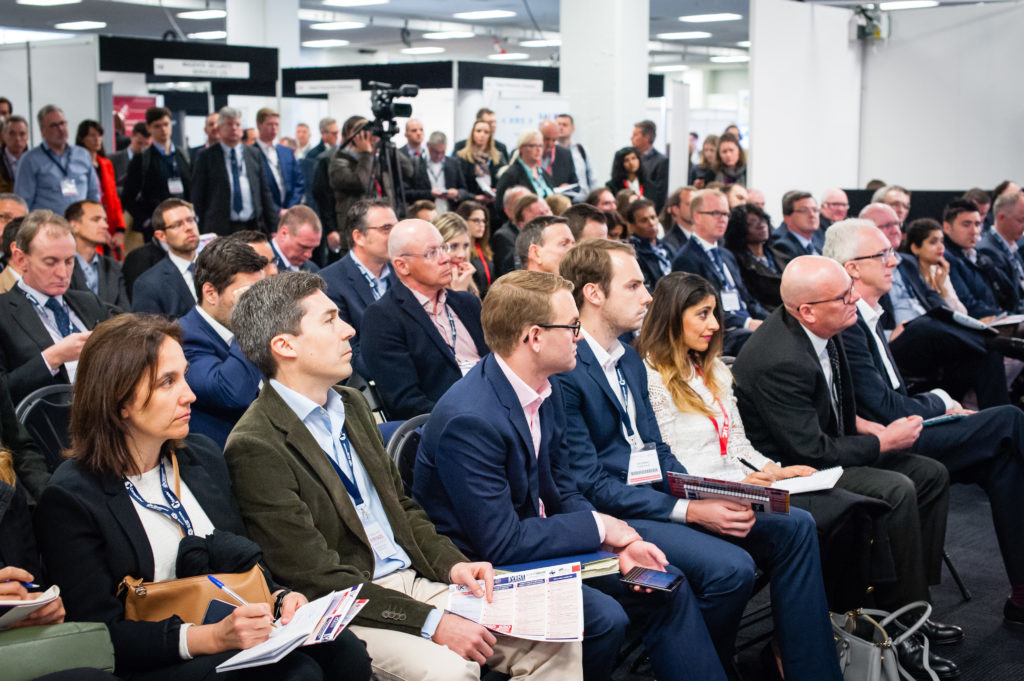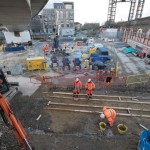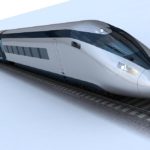Features - Business
UKIS 2018: Building the future of infrastructure


Official Media Partner
The buzz was all about collaboration at this year’s UK Infrastructure Show.
Following a successful inaugural year in 2017, the UK Infrastructure Show was back at the NEC, providing a comprehensive overview of the infrastructure projects and commitments in the UK today.
With more than 1,000 delegates attending, 50 companies exhibiting, and talks from some of the key people in infrastructure, the event represented the best in UK infrastructure today.
Delegates had the opportunity to engage directly with some of the largest infrastructure projects ongoing in the UK, such as Tideway – the super sewer across the Thames, and HS2 – the biggest infrastructure project in Europe, as well as housing providers, local authorities and procurement specialists.
While training zones provided comprehensive advice to delegates, bringing buyers and suppliers together, led by CompeteFor, PASS, tracker, Delta eSourcing and Supply2Gov.
The show was divided into three zones, representing the key areas in infrastructure: Moving, Housing and Powering. Each zone was packed throughout the day with delegates keen to learn the latest in procurement and supply chain advice and opportunities available. It was fascinating to see the overarching reach of infrastructure from utilities, and roads, to networks, skills and business.
With the Government confirming a £600Bn pipeline of public and private infrastructure investment over the next ten years, the sector is buzzing. And speakers talking at the show were keen to highlight that it’s not just investment in infrastructure projects that is happening, but a massive amount of effort is also being driven into developing the people who will design, build and run these projects.
With major transformations ongoing and more funding and investment in the pipeline, industry confidence has been boosted and this was reflected in the atmosphere at the show.
One major theme was the longevity of infrastructure, and the need to ensure what we are building today is not only suitable for the future, but adaptable and agile enough to remain useful for future generations.
The insights offered by the high-level speakers were invaluable for any business looking to succeed in the infrastructure pipeline.
Keith Waller, Commercial Advisor at the Infrastructure and Projects Authority, set the tone for the show, with a speech about how government is helping the industry shape itself, through the Transforming Infrastructure Performance Plan. By setting out broad long-term strategies for infrastructure investment, the government will help the sector plan for long term change, delivering better outcomes by focussing on efficiencies in procurement and delivery.
The skills agenda also made up some interesting talking points throughout the day, with visitors, exhibitors, and speakers all highlighting the need to invest in skills training, and retaining talented youth.
The devolution of power and decision-making to individual regions led to some lively conversations, with lots of talk about opportunities across the UK. UK regions were well represented at the show, with Wylfa Newydd Power Station in Wales, the West Midlands Combined Authority, Transport for the North and the Northern Powerhouse Partnership, all having a significant presence at the show, as well as Enterprise Ireland.
The Midlands was well represented, appropriately enough with the show being hosted by the NEC, as it is proving to be a hub for infrastructure. The development of HS2 is obviously a large factor in this, but it was great to see the Midlands Engine, Midlands Connect and WMCA, all expounding the benefits of the Midlands.
Not to let the Midlands take all the glory, the North continued to show its strong presence, with Transport for the North and the Northern Powerhouse Partnership represented in talks in both the Keynote arena and Moving Zones.
The keynote arena was chaired by Abigaile Bromfield, Associate Director at Arup, who has worked on some major growth and infrastructure plans and strategies, such as UK Central Hub and Solihull HS2 interchange station, as well as supporting delivery of consents for major housing, regeneration sites and infrastructure for a variety of national schemes.
She spoke about the critical part infrastructure plays in shaping society, how it is the foundation on which our economy is built.
The enthusiasm for infrastructure development came across from the keynote speakers, the energy with which they spoke drove lively Q&A sessions and conversations around the exhibition hall.
A central theme was the need to work together across the industry to deliver transformation within the sector, both in productivity and technology. And having witnessed the infrastructure sector in action, there is certainly a determination to make this happen.
If you would like to read more articles like this then please click here.
Related Articles
More Features
- Ten years of progress on payment, pre-qualification and skills
19 May 25
The industry has made significant progress on late payment, pre-qualification, and competence since the formation
- Pagabo provides clarity on impacts of new NPPS and PPNs
12 Mar 25
The Labour government’s new National Procurement Policy Statement (NPPS) sets out strategic priorities for public
- How is the Procurement Act going to drive social value
24 Feb 25
The regulations laid out within the Procurement Act 2023 will go live today.






